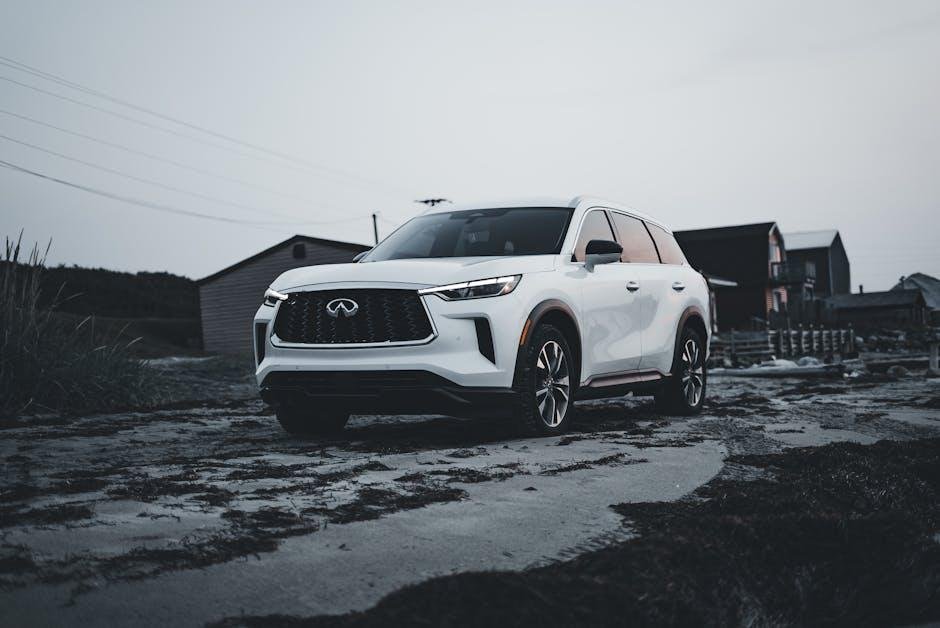Introduction
In the fast-paced world of automotive purchasing, the allure of a shiny new car can often overshadow the practical considerations that accompany such a meaningful investment.Whether you’re drawn in by the sleek design, the promise of advanced technology, or the thrill of the open road, it’s essential to pause adn reflect before committing to a vehicle. Beyond the glossy advertisements and persuasive sales pitches lies a set of crucial questions that can definitely help you navigate the complexities of car buying. This article delves into the essential inquiries you should make before saying ”yes” to your next set of wheels, ensuring that your decision aligns with your needs, budget, and lifestyle. Join us as we steer you through a checklist of thoughtful considerations that can transform your car-buying journey from an impulsive moment to a well-informed choice.
Understanding Your Budget and Financial Commitments
Before making a decision on a car purchase, it’s essential to have a clear understanding of your financial situation and obligations.Start by examining your current income and expenses to ensure that adding a car payment to your budget won’t lead to financial strain. consider both fixed costs, like your rent or mortgage, and variable expenses, such as groceries and entertainment. Identify areas where you can cut back if necessary. Create a realistic budget that includes all potential costs associated with owning a car, including:
- monthly payments: Assess how much you can afford based on your income.
- insurance costs: Research diffrent insurance rates that might apply to the car you’re considering.
- Fuel expenses: Estimate your monthly fuel costs depending on your expected driving habits.
- Maintenance and repairs: Factor in routine maintenance, unexpected repairs, and potential warranties.
It can be helpful to create a table to visualize your financial commitments and stay organized. Here’s a simple format to assist you in breaking down your projected automobile-related expenses:
| Expense Type | Estimated Monthly Cost |
|---|---|
| Car Payment | $____ |
| Insurance | $____ |
| Fuel | $____ |
| Maintenance | $____ |
Please ensure that the sum of these expenses aligns with your budget.This assessment will help determine whether your potential car fits within your financial framework, preventing any unwanted stress down the road.

Evaluating Your Needs for Functionality and Lifestyle
Before committing to a vehicle, it is crucial to reflect on how it will fit into your current lifestyle and cater to your specific needs. Consider factors such as:
- Daily Commute: How far do you travel to work or school? Will the vehicle’s fuel efficiency meet your needs?
- Family Size: Are you planning for a growing family? Will you need extra seats or cargo space for your lifestyle?
- Driving Habits: Do you mostly drive in the city or on highways? Is all-wheel drive a necessity for your habitat?
Furthermore, think about your future aspirations and how a new car might align with them. To make a well-informed decision, ask yourself:
- Technology Features: Are you looking for advanced safety features or infotainment options that enhance your driving experience?
- Environmental Impact: Would a hybrid or electric vehicle fit your values more closely?
- Long-term Maintenance: Are you prepared for the potential repair and maintenance costs associated with different makes and models?

Considering the Long-Term Costs of Ownership
When deliberating over the purchase of a vehicle, it is crucial to look beyond the initial sticker price. Monthly payments can quickly add up,but the financial implications continue long after the purchase. Factors such as insurance costs, fuel efficiency, and maintenance expenses play a significant role in the vehicle’s total cost.Additionally, consider the potential for depreciation, which can significantly reduce resale value, particularly in the first few years of ownership.
To gain a clearer picture of these long-term costs, it may be helpful to create a breakdown of anticipated expenses. Here’s a simplified table to illustrate the comparison of different vehicle types:
| Vehicle Type | Average Annual Maintenance | Insurance Estimate | Fuel Costs (per month) |
|---|---|---|---|
| Compact Car | $300 | $1,200 | $100 |
| SUV | $500 | $1,500 | $150 |
| Electric Vehicle | $200 | $1,000 | $50 |
In addition, don’t overlook the impact of financing options on your total expenditure. Choosing between loan terms, interest rates, and the costs of potential add-ons like extended warranties can lead to unexpected financial burdens down the line. Ultimately, a holistic view of both immediate and future financial commitments will foster a more informed decision that aligns with your lifestyle and budget.

Assessing Vehicle Reliability and Resale Value
When choosing a vehicle, evaluating its reliability is crucial for ensuring peace of mind over the years. A reliable car reduces the likelihood of unexpected repairs and inconveniences, allowing you to enjoy your investment fully. Seek out owner reviews and expert ratings—both are invaluable resources for gauging long-term performance. Some key factors to consider include:
- Manufacturer reputation: Research brands known for their durability and longevity.
- Common issues: Identify frequent complaints or recalls associated with the specific model.
- Warranty coverage: A strong warranty may indicate manufacturer confidence in their vehicle.
Resale value is another essential aspect to factor into your decision, as it can significantly impact your overall financial strategy. Vehicles that hold their value well can provide more favorable returns if you choose to sell or trade them in down the line. To assess a car’s resale potential, investigate:
- Market trends: some models are more desirable in the used car market, leading to higher prices.
- Fuel efficiency: Cars that are economical tend to attract more buyers and retain their value.
- Popularity of the brand: Well-known brands with loyal followings usually see fewer depreciation losses.
| Feature | Impact on Reliability | Influence on Resale Value |
|---|---|---|
| Maintenance history | Positive | Positive |
| Age of vehicle | Negative | Negative |
| Mileage | Negative | Negative |
| Model popularity | Positive | Positive |
Future Outlook
As you prepare to embark on the journey of car ownership, taking a moment to pause and reflect on your decisions can be invaluable. The questions outlined in this article serve as a compass, guiding you through the labyrinth of choices and considerations that lie ahead.By asking the right questions, you’re not merely saying “yes” to a car; you’re saying “yes” to a future that fits your lifestyle, budget, and aspirations.
Remember, every car has its story, and every owner its dreams. Equip yourself with knowledge and insight, and you’ll not only avoid potential pitfalls but also embrace the exhilarating adventure of the open road ahead. Whether you’re drawn to the allure of sleek designs, the comforting promise of reliability, or the thrill of innovation, let these questions inspire a thoughtful, informed decision that drives you confidently into the sunset. Happy car hunting!


